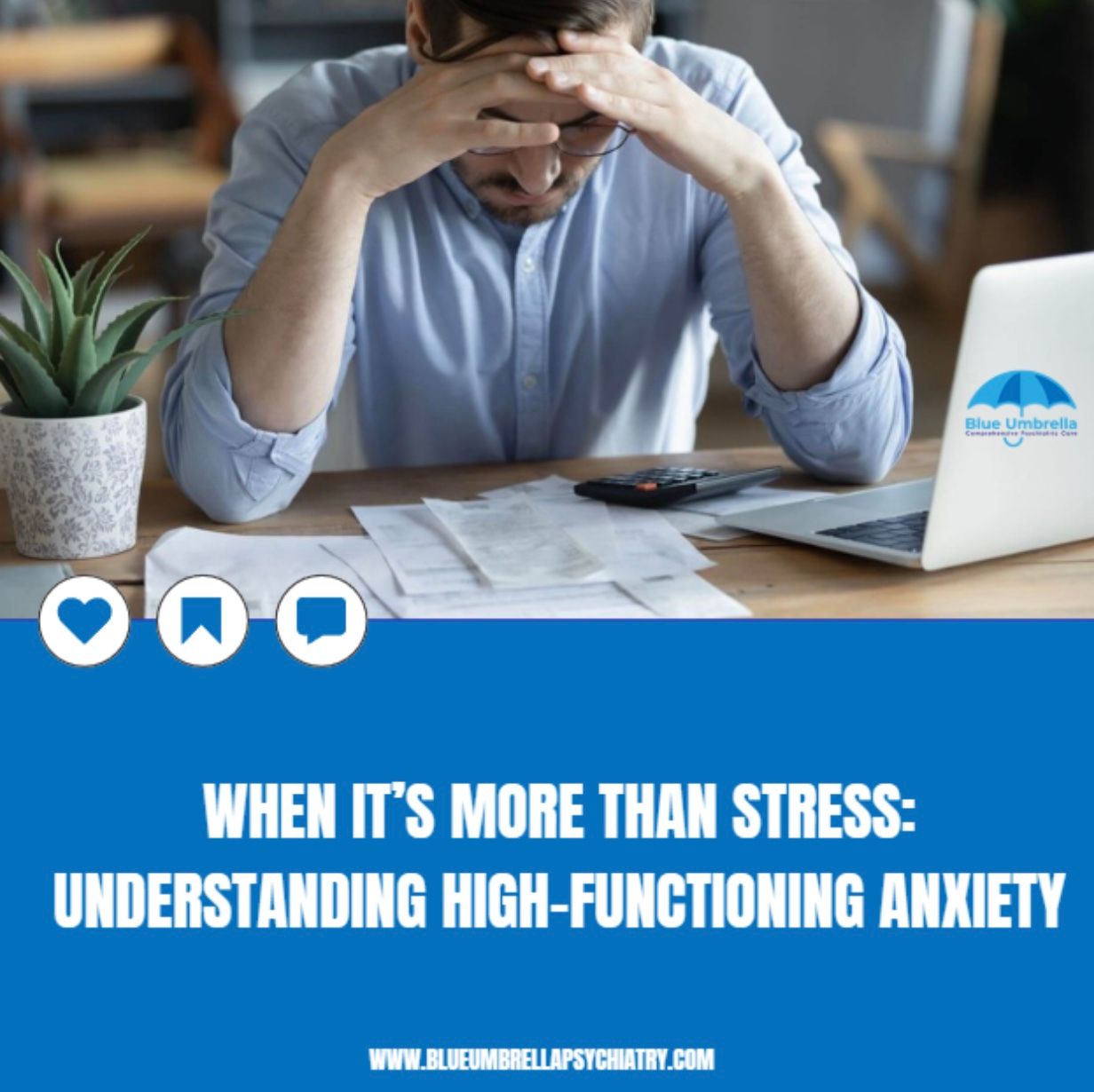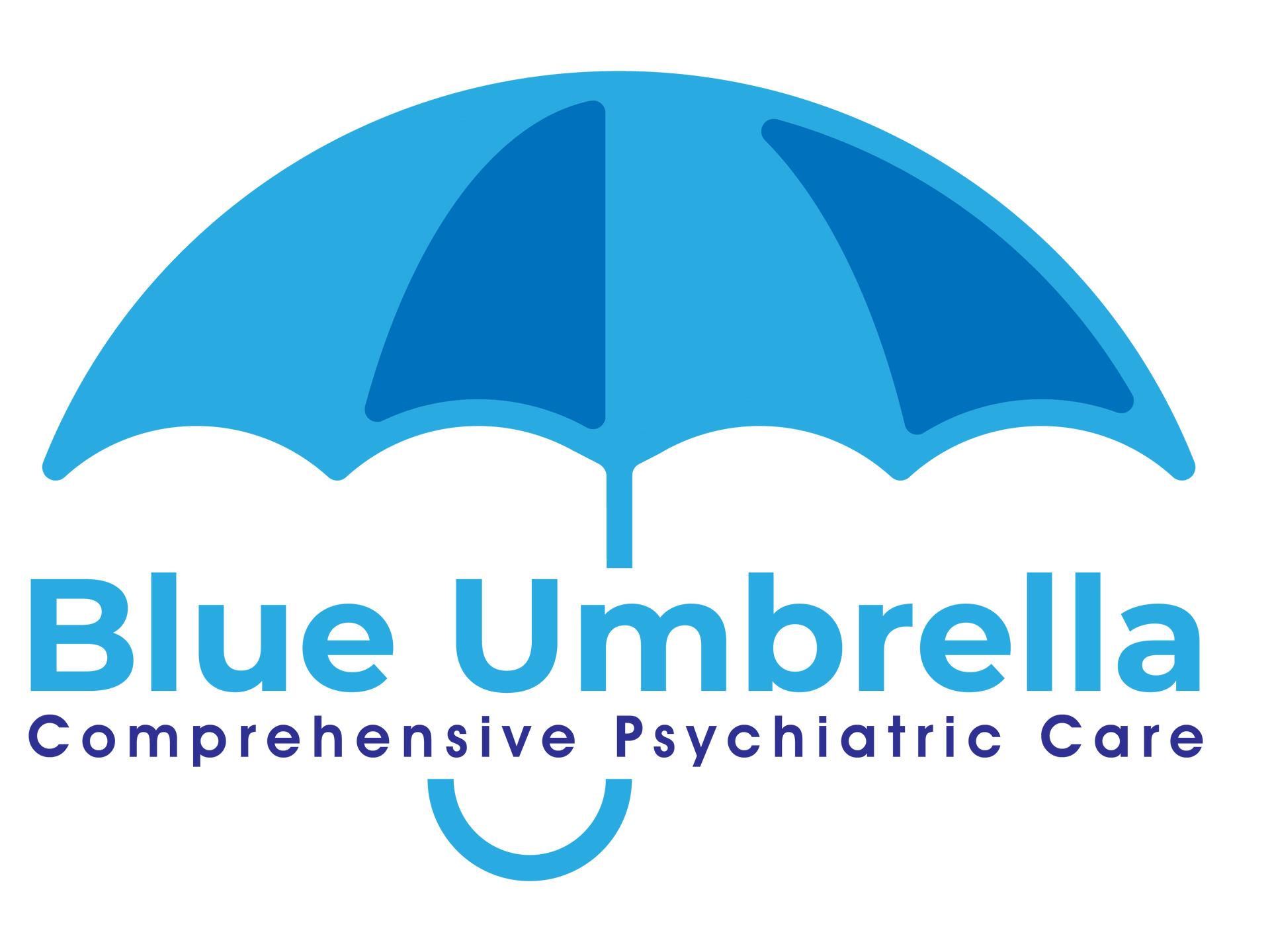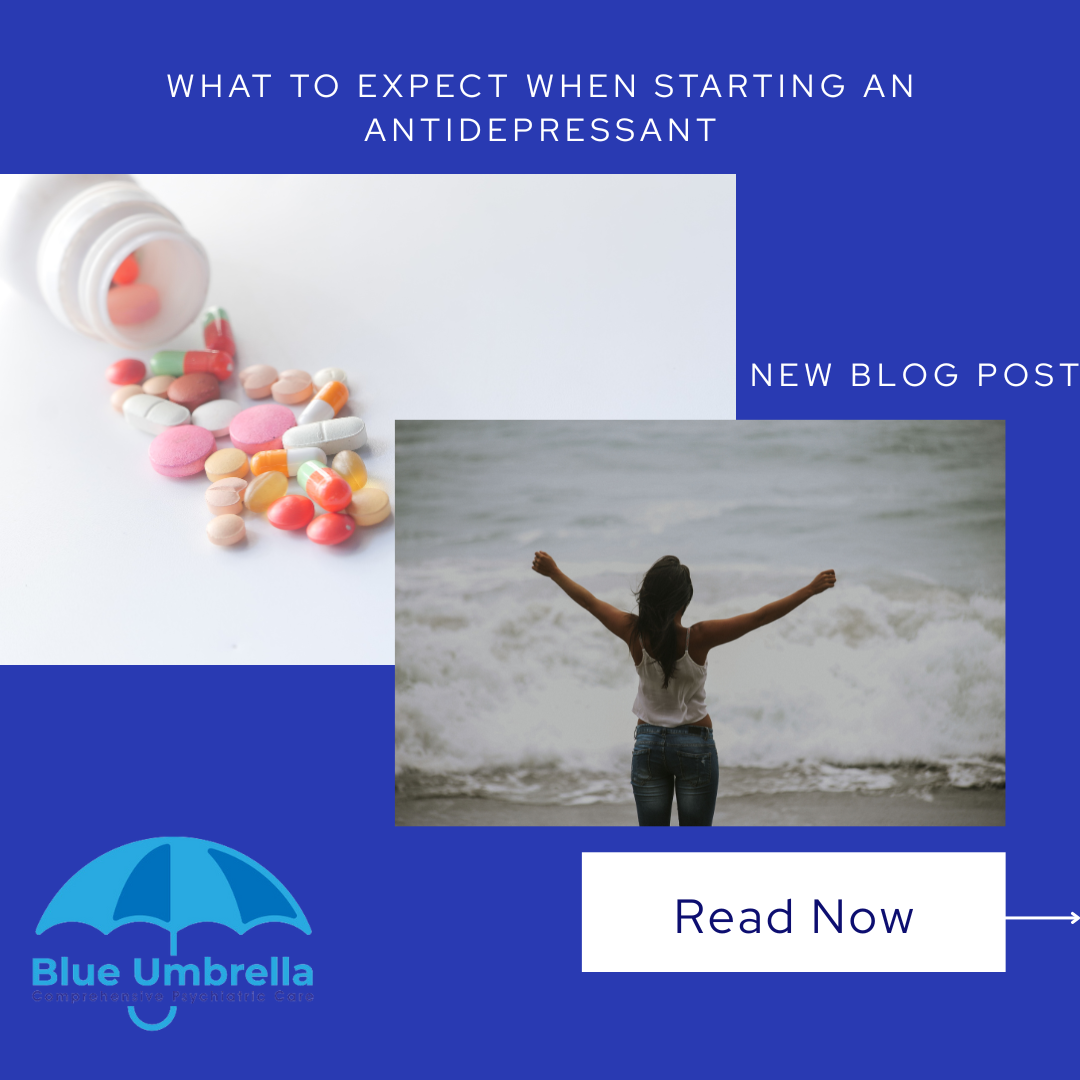
When It’s More Than Stress: Understanding High-Functioning Anxiety
Anxiety is one of the most common mental health conditions worldwide, affecting millions across all ages. While some people experience anxiety as obvious panic attacks or severe avoidance, others carry a heavy burden beneath a successful, put-together exterior — a pattern often called high-functioning anxiety.
At Blue Umbrella Psychiatry, we see many patients who manage careers, family, and social lives while quietly struggling with persistent worry, physical tension, and difficulty relaxing.
What Is High-Functioning Anxiety?
Though not an official diagnosis in the Diagnostic and Statistical Manual of Mental Disorders (DSM-5), high-functioning anxiety describes individuals who meet criteria for generalized anxiety disorder (GAD) or related anxiety conditions but maintain daily functioning. They often:
- Experience excessive, uncontrollable worry on most days for six months or more (a hallmark of GAD).
- Have physical symptoms such as muscle tension, headaches, or gastrointestinal discomfort.
- Exhibit restlessness, irritability, and difficulty concentrating.
- Struggle with sleep disturbances, including trouble falling or staying asleep.
Unlike acute anxiety or panic disorder, high-functioning anxiety might not be obvious to others, but it causes significant internal distress
Why It Matters Clinically
If persistent worry, muscle tension, irritability, or sleep problems interfere with your daily life — even if you “seem fine” outwardly — it’s time to talk to a professional.
High-functioning anxiety can feel isolating, but effective, evidence-based treatments are available.
Our New Space in Davie — Here for You
- Chronic fatigue and burnout
- Increased risk of depression
- Impaired immune functioning
- Substance use to self-medicate symptoms
- Lower quality of life despite outward success
Clinical studies show that generalized anxiety disorder affects about 6.8 million adults annually in the U.S. alone, and it is often underdiagnosed in those who appear high-functioning.
How Psychiatry Helps
Psychiatric evaluation is important for an accurate diagnosis and tailored treatment plan. At Blue Umbrella Psychiatry, our providers assess symptoms, co-occurring conditions, and functional impact.
Treatment often includes:
- Evidence-based psychotherapy such as Cognitive Behavioral Therapy (CBT), which targets maladaptive thinking and helps build coping strategies.
- Medication management with FDA-approved options like selective serotonin reuptake inhibitors (SSRIs) or serotonin-norepinephrine reuptake inhibitors (SNRIs), which reduce excessive anxiety and improve mood.
- For some patients, adjunct treatments such as mindfulness-based therapy or relaxation training are integrated to support overall well-being.
Therapy and Support at Blue Umbrella Psychiatry
Our licensed therapists provide individual and group therapy tailored to anxiety disorders. We focus on helping patients identify triggers, develop emotion regulation skills, and challenge perfectionism and worry cycles.
Collaborative care between psychiatry and therapy ensures continuity and comprehensive support.
When to Seek Help
If persistent worry, muscle tension, irritability, or sleep problems interfere with your daily life — even if you “seem fine” outwardly — it’s time to talk to a professional.
High-functioning anxiety can feel isolating, but effective, evidence-based treatments are available.
Our New Space in Davie — Here for You
At Blue Umbrella Psychiatry, we offer:
- Psychiatric evaluations and medication management
- Licensed therapy services for individuals of all ages
- Personalized, integrated treatment plans
You don’t have to face anxiety alone. Reach out today to explore your options.
📍 New Location:
6100 Griffin Rd., 2nd Floor, Davie, FL 33314
📞 Call us to schedule your consultation and take the first step toward relief.













